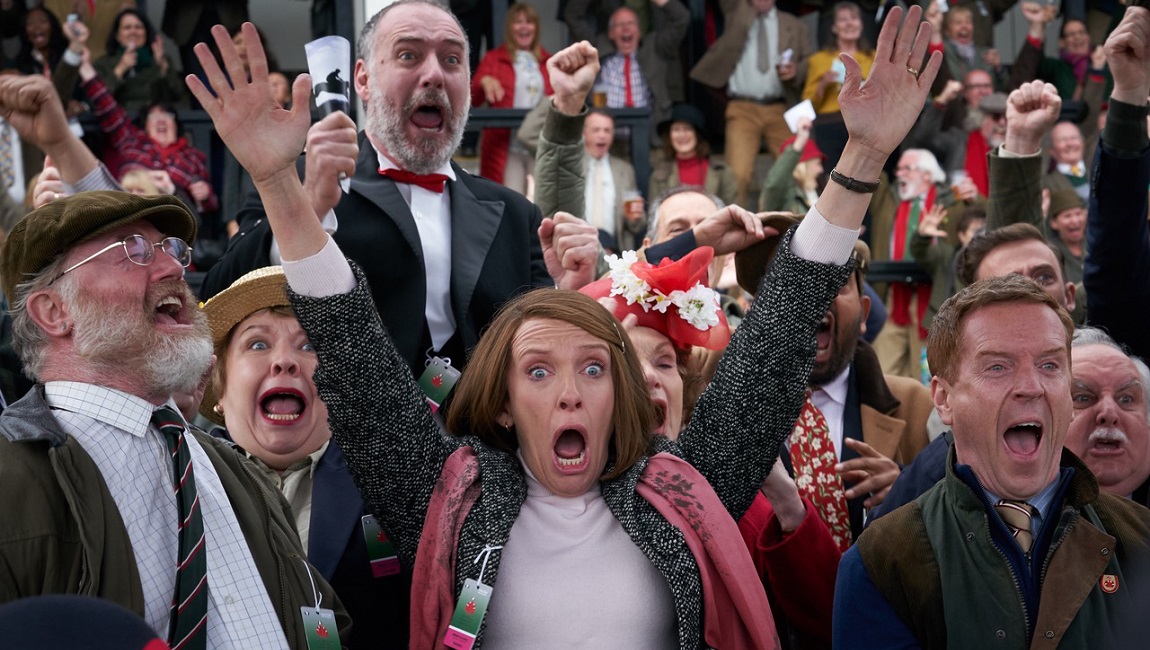Notorious gushes with admiration for a man who was unjustly taken from the world way before his time. Writers Reggie Rock Bythewood and Cheo Hodari Coker deliver a screenplay clearly meant to honor the memory of the iconic hip hop artist known as The Notorious B.I.G., while director George Tillman Jr.’s goal, similarly, is to do justice to Biggie Smalls. First time actor Jamal Woolard, who gained 50 pounds to play the title role, performs every line and offers every gesture in the hope that audiences will truly see Christopher Wallace alive once again, if only for two hours. And yet, the road to movie hell is paved with good intentions. While one certainly applauds the aims of all involved, it’s necessary to move beyond mere patronization and state unequivocally that this cookie-cutter biopic is a total mess. With a shallow screenplay, poor direction, and a lead performance that never becomes more than impersonation, Notorious presents viewers with the story of a cardboard cutout, nowhere near a fully-realized character study of a flesh-and-blood human being. Biggie deserves a better movie than this.
Angela Bassett — sometimes employing a Jamaican accent, but never consistently — portrays Christopher’s mother Voletta with a clenched jaw and determination blazing in her eyes, which can only come from a Hollywood actress pondering the difficulties of being a single mother living in Brooklyn. She holds her own in heated arguments with Biggie’s father, who left them both while Biggie was just a child. Which is why, in order to escape the fighting, the future rap star began writing angry rhymes and putting them to a beat. However, the words that come out of the young actor’s mouth during this initial epiphany of hip hop creativity sound antithetical to everything we have come to know about the good-natured, chubby kid that Wallace was up to this point. Where did his talent come from? It’s not like he’s ever seen working on his craft. Given that Notorious is about a man with incredible talent, it curiously spends very little time actually showing the creative process at work. Whenever Biggie starts to rap, he either improvises on the spot or he pulls from songs apparently written off screen. Sure, there are a handful of moments when he is seen recording music in the studio, but these sequences feel as if they’re meant to show off Woolard more than anything else.
At 19 years old, Wallace transitions from innocent boy with oversized glasses concocting rhymes alone in his room to a streetwise drug dealer known for skipping school and mouthing off to his math teacher. As success and romance transform Biggie into the public celebrity we’re all familiar with, Notorious becomes the portrait of a legend instead of a man. All the drama with Lil’ Kim and Faith Evans feels like the stuff of tabloids, and as the mounting turmoil between Bad Boy Records and Suge Knight/Tupac sets us up for the tragedy we know is coming, too much vague speculation surrounding their skirmish makes its way onto the screen. As the film progresses closer and closer to its inevitable conclusion, Biggie becomes more and more a saint. Right before he’s about to leave for his final car ride, he conveniently calls and apologizes to his wife Faith Evans for all the wrong he ever did to her. By this point, authenticity is thrown completely out the window in order to make room for sentimental homage and overt hagiography, and right in front of our eyes, Notorious ceases to maintain any value as a biopic. Ultimately it’s a film made by a group of people stifled by their worship of the fable of the legend of the myth of a man. What’s left is the sloppy aftermath resulting from a disjointed battle between authentic biography and blatant veneration.







